第35章 ENGLAND UNDER HENRY THE SECOND-PART THE FIRST(3)
Excommunication was,next to the Interdict I told you of at the close of the last chapter,the great weapon of the clergy.It consisted in declaring the person who was excommunicated,an outcast from the Church and from all religious offices;and in cursing him all over,from the top of his head to the sole of his foot,whether he was standing up,lying down,sitting,kneeling,walking,running,hopping,jumping,gaping,coughing,sneezing,or whatever else he was doing.This unchristian nonsense would of course have made no sort of difference to the person cursed-who could say his prayers at home if he were shut out of church,and whom none but GOD could judge-but for the fears and superstitions of the people,who avoided excommunicated persons,and made their lives unhappy.So,the King said to the New Archbishop,'Take off this Excommunication from this gentleman of Kent.'To which the Archbishop replied,'I shall do no such thing.'
The quarrel went on.A priest in Worcestershire committed a most dreadful murder,that aroused the horror of the whole nation.The King demanded to have this wretch delivered up,to be tried in the same court and in the same way as any other murderer.The Archbishop refused,and kept him in the Bishop's prison.The King,holding a solemn assembly in Westminster Hall,demanded that in future all priests found guilty before their Bishops of crimes against the law of the land should be considered priests no longer,and should be delivered over to the law of the land for punishment.
The Archbishop again refused.The King required to know whether the clergy would obey the ancient customs of the country?Every priest there,but one,said,after Thomas a Becket,'Saving my order.'This really meant that they would only obey those customs when they did not interfere with their own claims;and the King went out of the Hall in great wrath.
Some of the clergy began to be afraid,now,that they were going too far.Though Thomas a Becket was otherwise as unmoved as Westminster Hall,they prevailed upon him,for the sake of their fears,to go to the King at Woodstock,and promise to observe the ancient customs of the country,without saying anything about his order.The King received this submission favourably,and summoned a great council of the clergy to meet at the Castle of Clarendon,by Salisbury.But when the council met,the Archbishop again insisted on the words 'saying my order;'and he still insisted,though lords entreated him,and priests wept before him and knelt to him,and an adjoining room was thrown open,filled with armed soldiers of the King,to threaten him.At length he gave way,for that time,and the ancient customs (which included what the King had demanded in vain)were stated in writing,and were signed and sealed by the chief of the clergy,and were called the Constitutions of Clarendon.
The quarrel went on,for all that.The Archbishop tried to see the King.The King would not see him.The Archbishop tried to escape from England.The sailors on the coast would launch no boat to take him away.Then,he again resolved to do his worst in opposition to the King,and began openly to set the ancient customs at defiance.
The King summoned him before a great council at Northampton,where he accused him of high treason,and made a claim against him,which was not a just one,for an enormous sum of money.Thomas a Becket was alone against the whole assembly,and the very Bishops advised him to resign his office and abandon his contest with the King.
His great anxiety and agitation stretched him on a sick-bed for two days,but he was still undaunted.He went to the adjourned council,carrying a great cross in his right hand,and sat down holding it erect before him.The King angrily retired into an inner room.The whole assembly angrily retired and left him there.
But there he sat.The Bishops came out again in a body,and renounced him as a traitor.He only said,'I hear!'and sat there still.They retired again into the inner room,and his trial proceeded without him.By-and-by,the Earl of Leicester,heading the barons,came out to read his sentence.He refused to hear it,denied the power of the court,and said he would refer his cause to the Pope.As he walked out of the hall,with the cross in his hand,some of those present picked up rushes-rushes were strewn upon the floors in those days by way of carpet-and threw them at him.He proudly turned his head,and said that were he not Archbishop,he would chastise those cowards with the sword he had known how to use in bygone days.He then mounted his horse,and rode away,cheered and surrounded by the common people,to whom he threw open his house that night and gave a supper,supping with them himself.That same night he secretly departed from the town;and so,travelling by night and hiding by day,and calling himself 'Brother Dearman,'got away,not without difficulty,to Flanders.
The struggle still went on.The angry King took possession of the revenues of the archbishopric,and banished all the relations and servants of Thomas a Becket,to the number of four hundred.The Pope and the French King both protected him,and an abbey was assigned for his residence.Stimulated by this support,Thomas a Becket,on a great festival day,formally proceeded to a great church crowded with people,and going up into the pulpit publicly cursed and excommunicated all who had supported the Constitutions of Clarendon:mentioning many English noblemen by name,and not distantly hinting at the King of England himself.